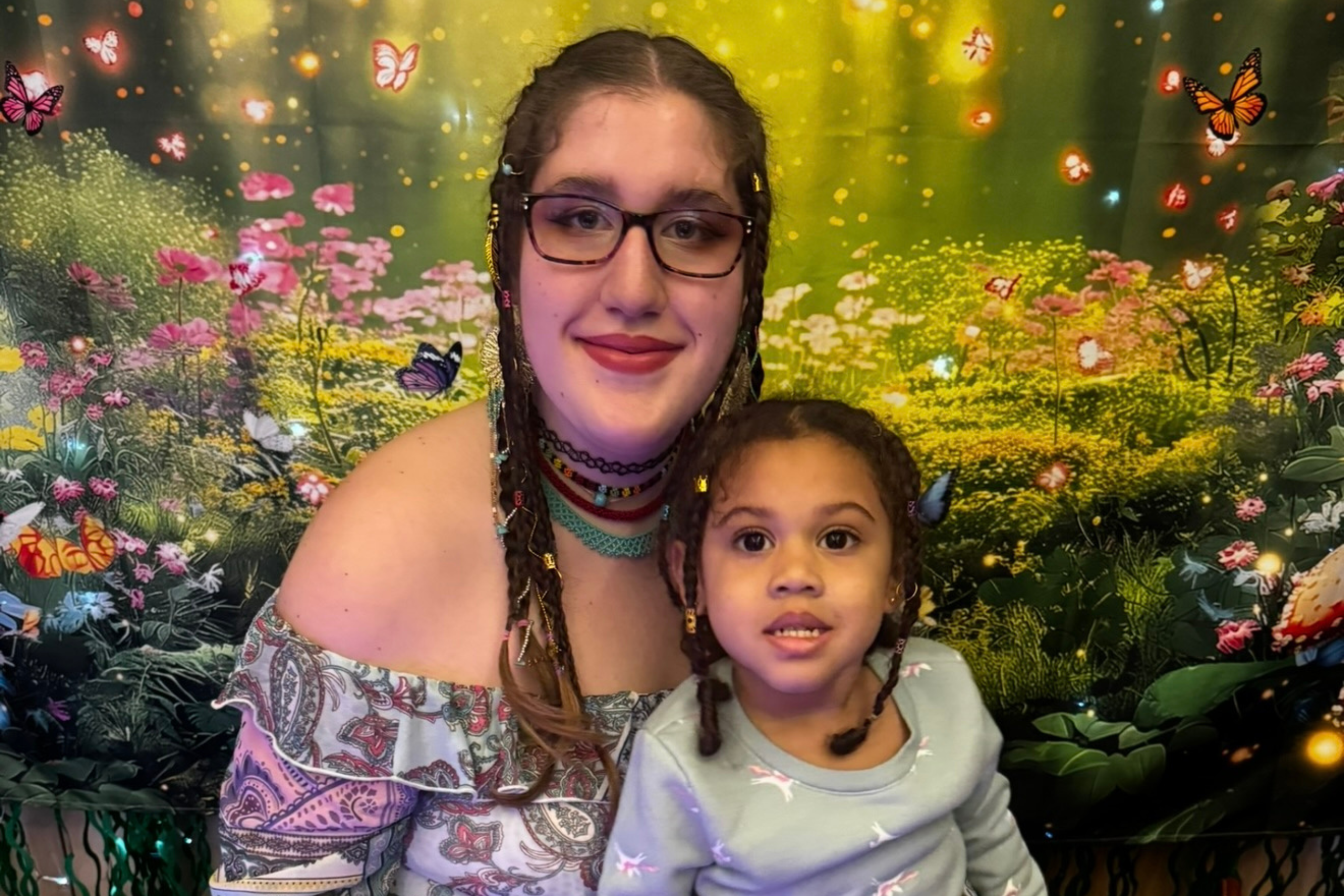The first time Kimberly Riquelme had a child was at 19. It was also the first time she experienced homelessness all by herself.
In 2022, she left the student housing she lived in while attending nursing school in Illinois and cut ties with her daughter’s abusive father.
She tried to find a bigger space to raise her daughter Jazmine, but she often had to switch between shelters, people’s couches, hotel rooms, and even her grandmother’s car.
Doubling-up is when a person shares housing with others due to economic hardship, and it is the most common form of homelessness experienced in Chicago by predominantly communities of color.
Some of the most vulnerable people who experience homelessness are mothers and children.
There are over 1 million women and 2.5 million children who experience homelessness every year in the United States, making them the fastest-growing population to experience this kind of hardship, according to a 2022 report by Lotus House Women’s Shelter.
In cities around the country, empty homes outnumber homeless people, and luxury housing displaces working-class families, pointing to the failure of the current capitalist system to provide homes as a human right.
In less than 100 days, the Donald Trump administration and his billionaire backers have dismantled hard-won welfare policies the working class fought for such as the U.S. Interagency Council on Homelessness (USICH), an agency that coordinates the federal homelessness response across states and localities.
The United States is also the richest country in the world with the highest net worth.
Despite the country’s resource and wealth abundance, it continues to use tax payer dollars to fund a genocide in Palestine all while American schools continue to be underfunded, people lack livable wages, infrastructure conditions worsen and homelessness rises.
Dr. Emma Anselin, a pediatrician and member of the Collaborative on Child Homelessness Illinois (COCHI), said many of her patients experience living doubled-up.
“I really don’t see it as a personal choice. I think it’s something a lot of families are forced into,” she said.
Anselin said housing instability is also a “huge public health crisis” because it is one of the biggest determinants of health.
This crisis has left mothers and children more at risk of experiencing toxic stress, Dr. Anselin said.
“When a pregnant person or a young child is exposed to a hardship like not having a stable, secure home over and over, that experience of stress actually causes physiological changes in our body,” Dr. Anselin said.
“It activates our fight or flight response, it causes stress hormones to be triggered, and if that happens again and again, that actually causes that fight or flight response to get dysregulated, and that can cause harm to our organs over time,” she added.
Now 23, Riquelme said she remembers while living between shelters, her body was always in “fight or flight.”
“All these people were trying to mess with me, and I was just trying to be safe with me and my kid,” Riquelme said.
The health of the baby is also greatly tied to the health of the mother.
This means that under stressful conditions such as living doubled-up, mothers have “a much greater risk of having a pre-term birth or of giving birth to an infant with what we call low birth weight,” Dr. Anselin said. “They are more likely for their baby to need to stay in the NICU (Neonatal Intensive Care Unit).”
All of these circumstances “compound over time” and increase the baby’s risk of having lung or feeding problems,” Dr. Anselin said.
Moreover, sharing a crowded space often means not having enough room for a baby’s crib.
Dr. Anselin said she is afraid that when families do not have a safe space for their baby to sleep that it “significantly increases these babies’ chances of having sudden infant death.”
According to data, some of the common risk factors for sudden infant deaths include the use of old or unsafe cribs, placing the child on soft bedding, bed-sharing with a parent, smoking in the home, and more.
Riquelme said she recalled many times having to put her baby girl in a car seat, a couch, or a stroller just so she could get the sleep she needed to grow.
“I knew it wasn’t the safest way to do it, but I was just doing the best I could,” Riquelme said.
Last February, Riquelme and her baby were able to get stable housing in Chicago with the help of the Lyte Collective.
She also became the president of the Youth Action Board, a group of youth leaders who previously experienced homelessness.
Her daughter Jazmine is now 3-years-old.
“I love her,” Riquelme said. “I’m doing all that I can to give her a better life than I’ve had.”
